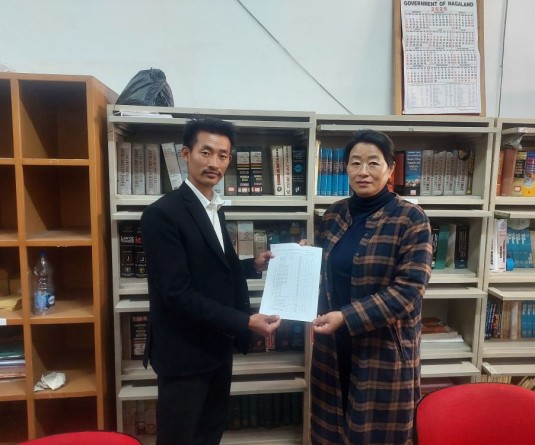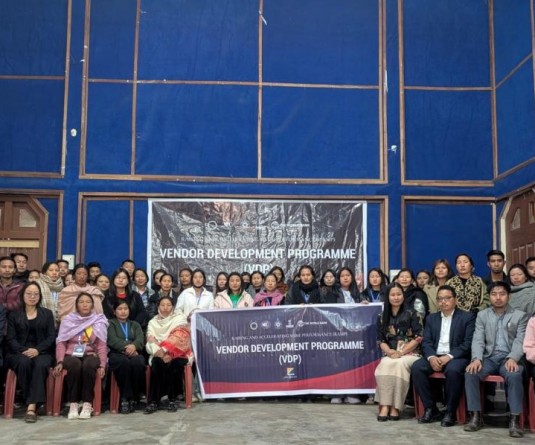
Dimapur, November 21 (MExN): A group of eminent citizens comprising of ecologists, environmentalists, social scientists, government officials and social activists today shot off a memorandum addressed to P.R. Kyndiah, Minister for Tribal Affairs, Government of India raising alarm for the undue delay in the Notification of The Scheduled Tribes And Other Traditional Forest Dwellers (Recognition Of Forest Rights) Act, 2006, which they consider as “undermining the rights of forest dwellers and facilitating forest destruction by commercial interests besides perversely serving none of the purposes” laid out in the Preamble: "strengthening the conservation regime of the forests while ensuring livelihood and food security of the forest dwelling Scheduled Tribes and other traditional forest dwellers". This prominent personalities are Dr. S.R. Sankaran (Chairperson,TSG), Dr. B.D. Sharma, Kumar Shiralkar, Dr. Madhav Gadgil, Madhu Sarin, Dr. Nandini Sundar, Pradip Prabhu, Dr. Ram Dayal Munda and Dr. Smita Gupta who constitute the Technical Support Group on Rules for the Scheduled Tribes and Other Traditional Forest Dwellers (Recognition of Forest Rights) Act, 2006 formed by the Ministry of Tribal Affairs (MoTA) to draft the Forest Rights Act besides drafting the Rules to operationalize the Act.
Expressing profound concern as members of TSG, the memorandum highlighted the baffling delay in the notification of the Act and its Rules and the need to ensure its immediate notification. Stressing that media reports were suggestive that the cause is “an attempt to rework the Rules so as to either dilute the rights of, or entirely exclude, forest dwellers in Protected Areas from the ambit of the Act.” Allaying fears that the Act is going against the interests of conservation, the memo stated that “It contains adequate safeguards for protecting flora/fauna in Protected Areas, going to the extent of permitting modification of rights of forest dwellers (including physical relocation) in those areas within National Parks and Wildlife Sanctuaries that need to be kept inviolate.”
However according to the Technical Support Group “this involves two steps, the prior and complete recognition and vesting of rights, so that the residents of these areas are able to get full compensation in case they are subsequently displaced, followed by a case-by-case scientific and objective assessment including public consultation that human activity is harmful.” The TSG while reinforcing this position clarified that “these basic steps are supported by most conservation organisations and are the minimum required by both natural justice and ecological science.”
The Act was passed unanimously by both houses of Parliament 11 months ago and received Presidential assent 10 days later. Urging for immediate notification of the Act and its rules the experts commented that, 'The greater the time that lapses between the cut off date of December 2005 and notification, the more blurred the ground situation will become. There are already several reports of massive eviction of poor forest dwellers from areas occupied by them for generations, taking advantage of the delay in notification. In the meantime, the powers that the gram sabhas would have gained to keep out encroachments by mafia and powerful mining companies have been denied. There are several instances, where the purposes of conservation would have been better served if the gram sabhas could have exercised the rights they have been given by Parliament under the Act'.






